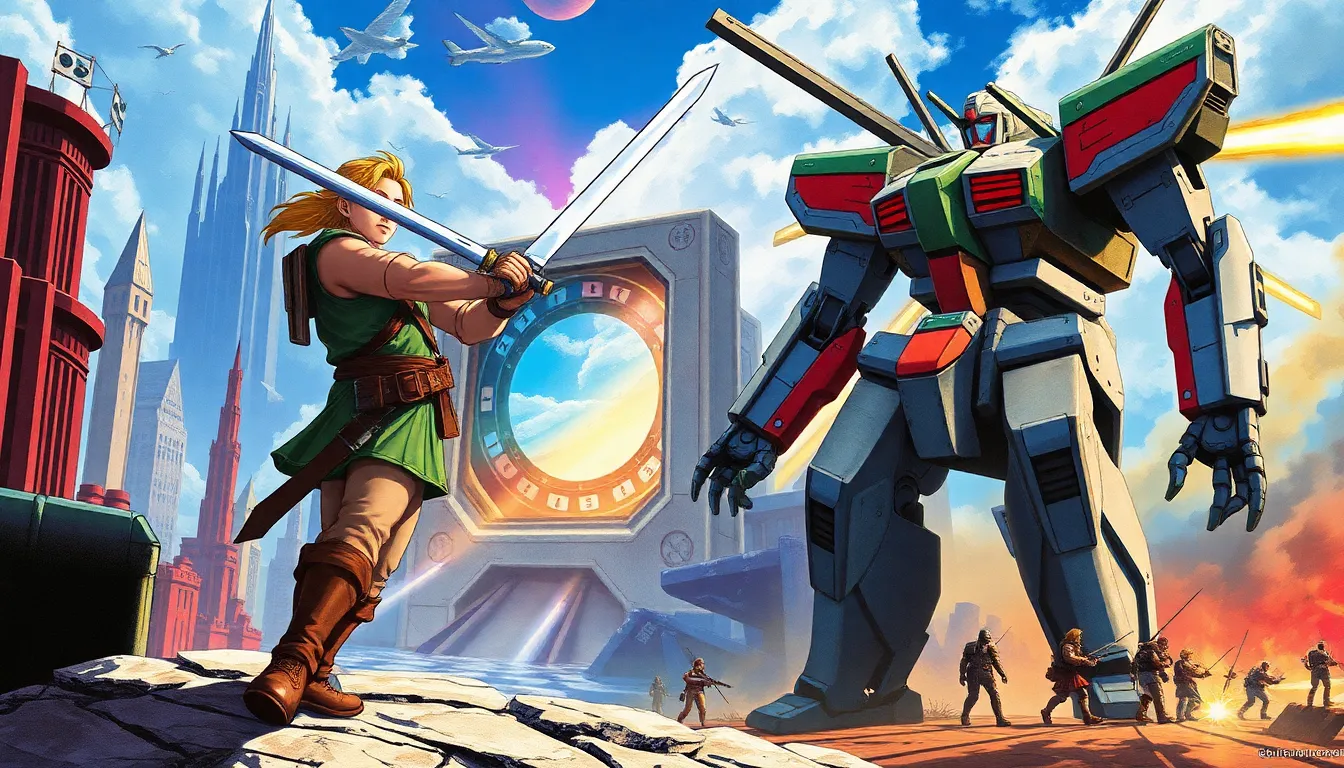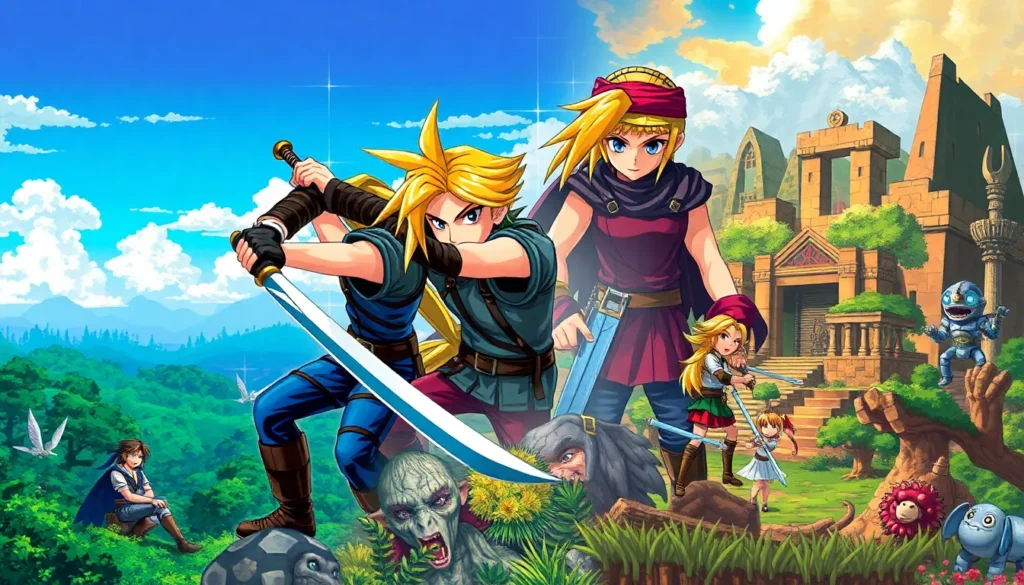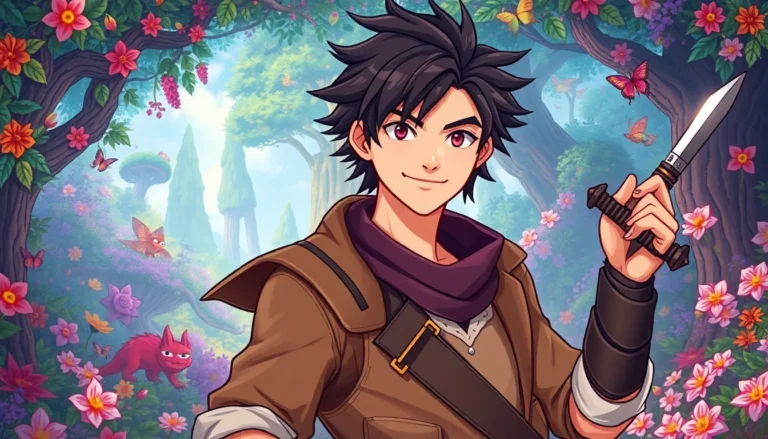In the late ’90s, the PlayStation 1 burst onto the gaming scene and turned the RPG world upside down. With its pixelated charm and unforgettable storylines, it captured the hearts of gamers everywhere. Who could resist diving into epic quests while battling monsters that looked like they were drawn by a caffeinated squirrel?
Table of Contents
ToggleOverview of PS1 RPG Games
Many iconic RPG games emerged on the PlayStation 1, transforming the gaming landscape. Titles like “Final Fantasy VII” showcased extensive world-building and character development, setting a new standard for storytelling in games. Strategy and exploration became integral as players navigated this expansive digital universe filled with rich narratives.
Diverse gameplay mechanics enhanced the RPG experience. Turn-based combat offered strategic depth, while real-time elements injected a sense of urgency. Rich environments and intricate quests invited players to immerse themselves in vivid, fantastical settings.
Several developers made significant contributions to the genre. Square (now Square Enix) defined RPG storytelling with emotional narratives. Enix also delivered memorable experiences through series like “Dragon Quest,” emphasizing engaging gameplay and charming characters.
Unique visual styles characterized many PS1 RPG titles. Graphics blended 2D sprites with 3D environments, presenting a captivating aesthetic. This combination resulted in memorable character designs and picturesque landscapes, adding to the overall immersion.
Music played a crucial role in setting the tone of these games. Iconic soundtracks from composers like Nobuo Uematsu captivated players, further enhancing emotional resonance during key moments. The combination of visuals and audio created an unforgettable atmosphere.
Longevity and influence are evident in these classic titles. They continue to shape modern RPGs, inspiring countless developers to explore new narratives and mechanics. Overall, the evolution of RPGs on the PS1 paved the way for future innovations in the genre, establishing a lasting legacy in video game history.
Notable PS1 RPG Titles


The PlayStation 1 featured groundbreaking RPG titles that defined the genre and influenced future games. Each game offered unique mechanics and narratives, capturing the hearts of players.
Final Fantasy VII
Final Fantasy VII stands as a landmark in RPG history. Released in 1997, it introduced players to Cloud Strife and a richly detailed world. Dramatic storytelling unfolds alongside memorable characters, creating emotional connections. Its turn-based combat blended seamlessly with exploration mechanics, inviting players to dive into intricate environments. The stunning visuals, paired with Nobuo Uematsu’s iconic soundtrack, left a lasting impression. Many cite Final Fantasy VII as a catalyst for the mainstream acceptance of RPGs outside Japan.
Chrono Cross
Chrono Cross emerged in 1999 as a sequel to Chrono Trigger, featuring a distinct aesthetic and complex narrative. Its story revolves around time travel and alternate realities, challenging players with moral dilemmas. Notably, the game boasts a diverse cast of over 40 characters, each with unique abilities. Combat mechanics mix turn-based strategies with elemental systems, enhancing gameplay depth. The lush graphics, combined with Yasunori Mitsuda’s atmospheric music, immerse players in this captivating adventure. Chrono Cross continues to inspire discussions about game design and storytelling.
Xenogears
Xenogears debuted in 1998, showcasing a profound narrative and philosophical themes. Players experience an intricate blend of mecha battles and role-playing elements. The game’s dual-system combat combines traditional turn-based actions with real-time execution, creating a dynamic experience. Characters undergo significant development, inviting players to ponder existential questions. Its elaborate storyline delves into complex topics like religion and identity. Memorable visuals and an evocative score enhance the emotional depth of the journey. Xenogears remains influential, resonating with fans for its ambitious storytelling.
Gameplay Mechanics in PS1 RPGs
Gameplay mechanics in PS1 RPGs varied significantly, enhancing player engagement and immersion. Developers employed a range of systems, from turn-based combat to deep storytelling that fostered emotional connections with characters.
Turn-Based Combat
Turn-based combat defined many PS1 RPGs, emphasizing strategy and planning. Players made tactical decisions on turn orders, defining each character’s strengths and utilizing specific abilities. This system allowed for intricate battles against a variety of enemies, often requiring players to adapt their strategies based on opponents’ weaknesses. Notably, games like “Final Fantasy VII” integrated limit breaks, adding layers of depth to combat encounters. Character customization through Materia and abilities further empowered players to craft unique fighting styles. Turn-based systems provided a balanced pace, ensuring that every choice carried weight and impact.
Exploration and Storytelling
Exploration and storytelling intertwined seamlessly in PS1 RPGs, creating immersive worlds. Developers designed vast environments filled with hidden secrets, encouraging players to uncover lore and interact with non-playable characters (NPCs). Engaging narrative arcs allowed for character development, drawing players further into the plots. Games like “Chrono Cross” featured branching storylines influenced by player choices, enhancing replayability and personal investment. Side quests added depth, revealing additional facets of the game’s universe. This blend of exploration and storytelling set a high standard for narrative-driven gameplay, making these titles memorable and influential.
The Impact of PS1 RPG Games on the Genre
PS1 RPG games fundamentally changed the landscape of role-playing games. Titles like “Final Fantasy VII” offered groundbreaking storytelling, demonstrating that deep narratives could captivate audiences. Unique character arcs enriched player experiences, letting them connect emotionally with protagonists like Cloud Strife.
Innovation in gameplay mechanics also set PS1 RPGs apart. Turn-based combat systems required players to think strategically, enriching combat encounters with depth. Customization options, such as the Materia system in “Final Fantasy VII,” awarded players the freedom to tailor characters to their play styles.
Exploration in these games was expansive, with richly detailed worlds encouraging immersion. Players could invest hours uncovering lore, interacting with diverse NPCs, and discovering hidden secrets. This design philosophy prioritized player engagement, establishing a model for future RPGs to emulate.
Memorable soundtracks, composed by legends like Nobuo Uematsu, enhanced emotional connections within the gameplay. Music became an integral element, reinforcing dramatic moments and elevating the overall experience. The sonic landscape helped solidify a sense of nostalgia and attachment to the characters and stories.
Developers like Square and Enix laid the groundwork for complex narratives. Their commitment to high-quality storytelling inspired subsequent generations of RPG creators. The legacy of these PS1 titles persists, with modern games echoing their themes, mechanics, and artistic styles, a testament to their lasting impact on the genre.








